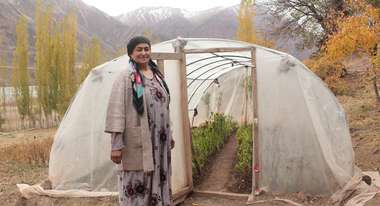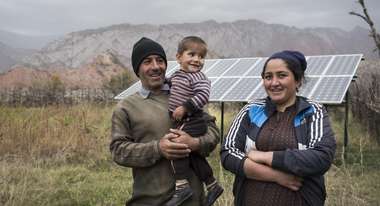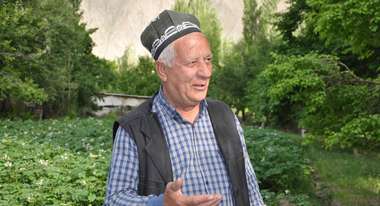Protection for forest and climate
Tajikistan's forests are shrinking due to people's need for wood. Welthungerhilfe supports with environmentally friendly energy sources.
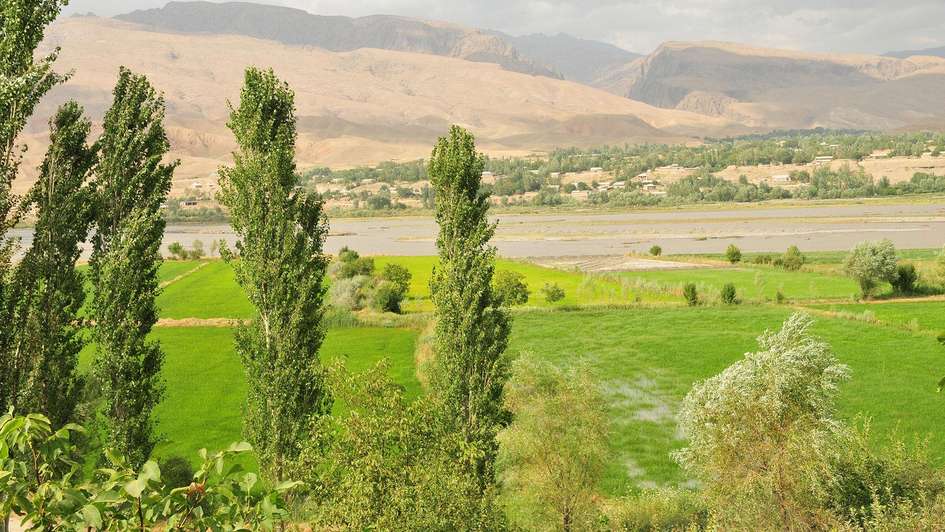
Tajikistan’s forests cover less than three percent of its land area, and even that percentage is shrinking. For the rural population of Central Asia’s poorest republic, wood is an important resource for heating and cooking. Especially in the winter, people have too little electricity and resort to burning wood in inefficient ovens and stoves, losing more than two thirds of the energy in the process. This also results in high rates of respiratory ailments, especially among women, because exhaust systems such as chimneys are often missing.
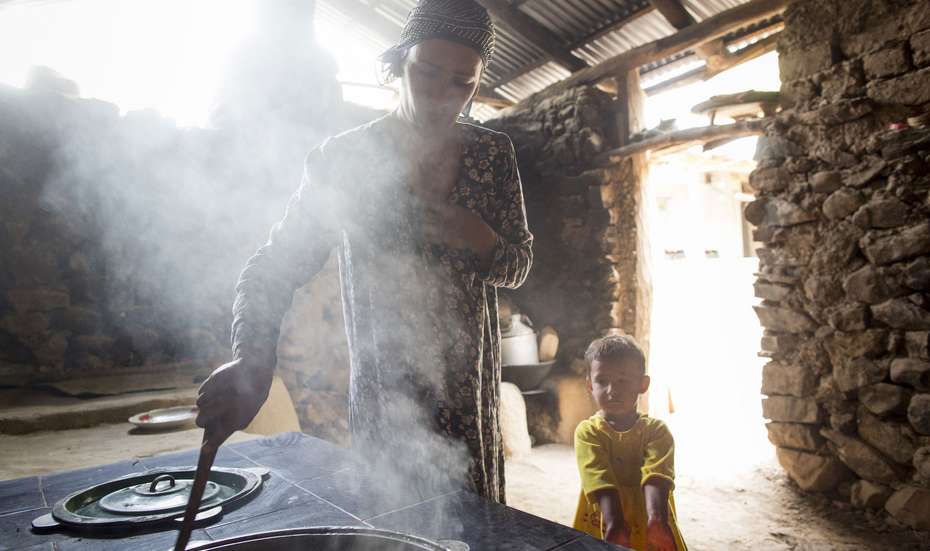
The poor power supply also limits rural tradespeople and workshops to seasonal work unless they run fossil fuel-powered generators at a high cost. Agricultural production in certain regions of Tajikistan has long been substandard. Farmers cultivate their land using methods inherited from large-scale Soviet agriculture and not suited to the currently available soil. Soil depletion and erosion are widespread, and income from agriculture is barely enough for survival.
Energy Efficiency for People and Environment
Welthungerhilfe is working with local and international partners to help the people living in the rural districts of central Tajikistan. Applying new approaches to agriculture and energy supply, it is supporting approximately 32,000 people directly and a further 80,000 indirectly. Rates of respiratory ailments are decreasing markedly, and carbon dioxide emissions are being reduced by around 1,800 tonnes per year.
Improving Agriculture and Energy Supply
-
The construction of five small hydro-electric power plants and 20 photo-voltaic arrays to power water pumps is letting mountain communities replace wood, coal, and diesel with renewable energy.
-
Locally produced, wood-saving kitchen ovens and heating systems are being distributed.
-
Insulation in houses is being improved.
-
Thousands of households are learning how to improve fuel efficiency, saving money and reducing fuel use, with subsidies going to 600 families in extreme need.
-
Efficiency measures, especially with regard to heating technologies, are being implemented in 130 public institutions such as schools and hospitals.
-
Commerce and trades are being developed as well, with around 40 businesses benefiting from electrification and new sales opportunities.
-
Ten innovative small-scale farmer cooperatives are being supported in shifting operations towards adapted, resource-efficient agriculture that is more robust to climate change.
-
These model operations serve as demonstration and training farms for 500 farmers and decision makers from the district.
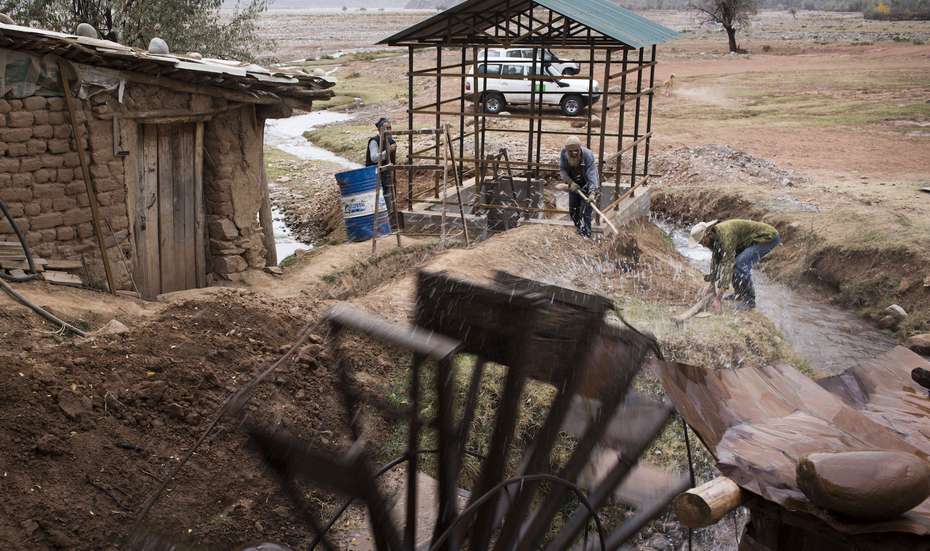
Protection for Tajikistan’s Forests
Tajikistan is one of the thirty countries in the world most affected by climate change. As the country's remaining forested areas can be accessed and exploited with few regulations, they are losing two to three times as much wood as naturally regenerates. Government authorities for forestry are not keeping up, and cleared areas are not being reafforested.
How Welthungerhilfe Helps Protect Tajikistan’s Forests
-
Joint forest management systems will be established in areas that have not lost their forests entirely.
-
Ten communities abutting a still-forested area and ten communities in degraded lowlands will receive support for the sustainable use and rehabilitation of the land.
-
An agreement will be made between government forestry authorities and local communities, with the forestry authorities receiving training and technology to enable them to better fulfil their responsibilities and village residents committing to protect forest resources from fire, grazing, and illegal harvests.
-
In the region’s degraded lowlands, trees will be planted for firewood to provide the population with medium-term relief from energy scarcity.





